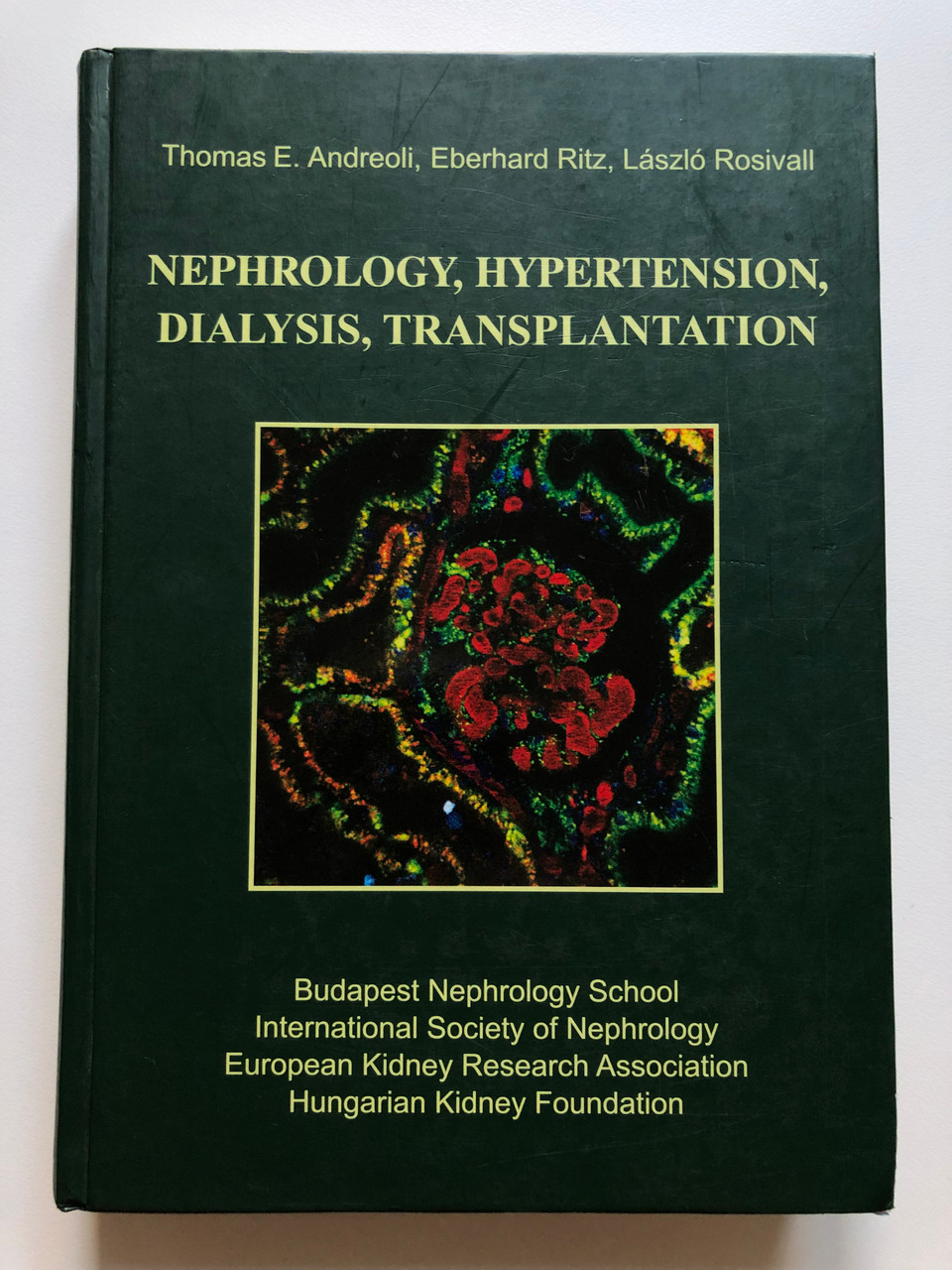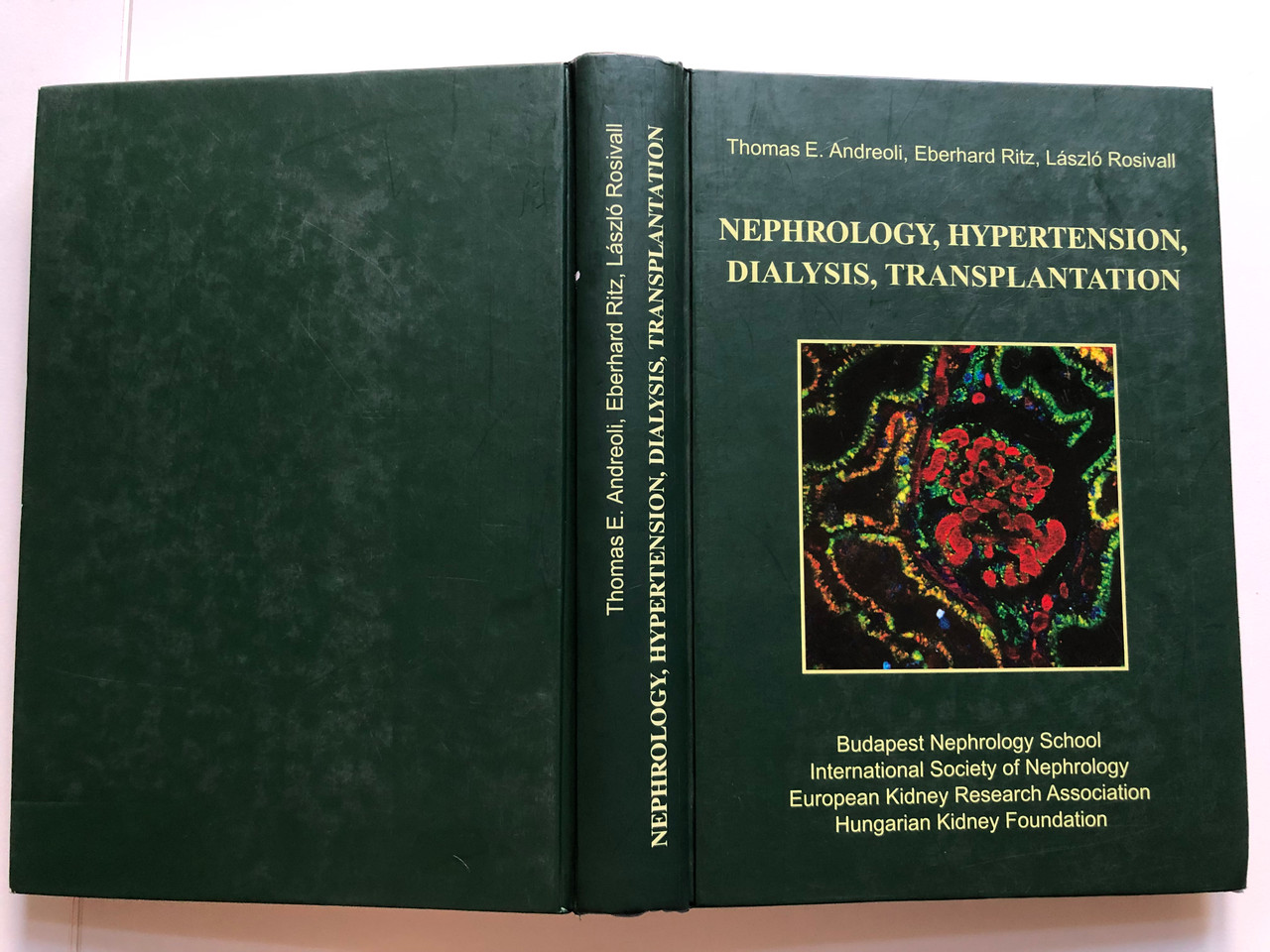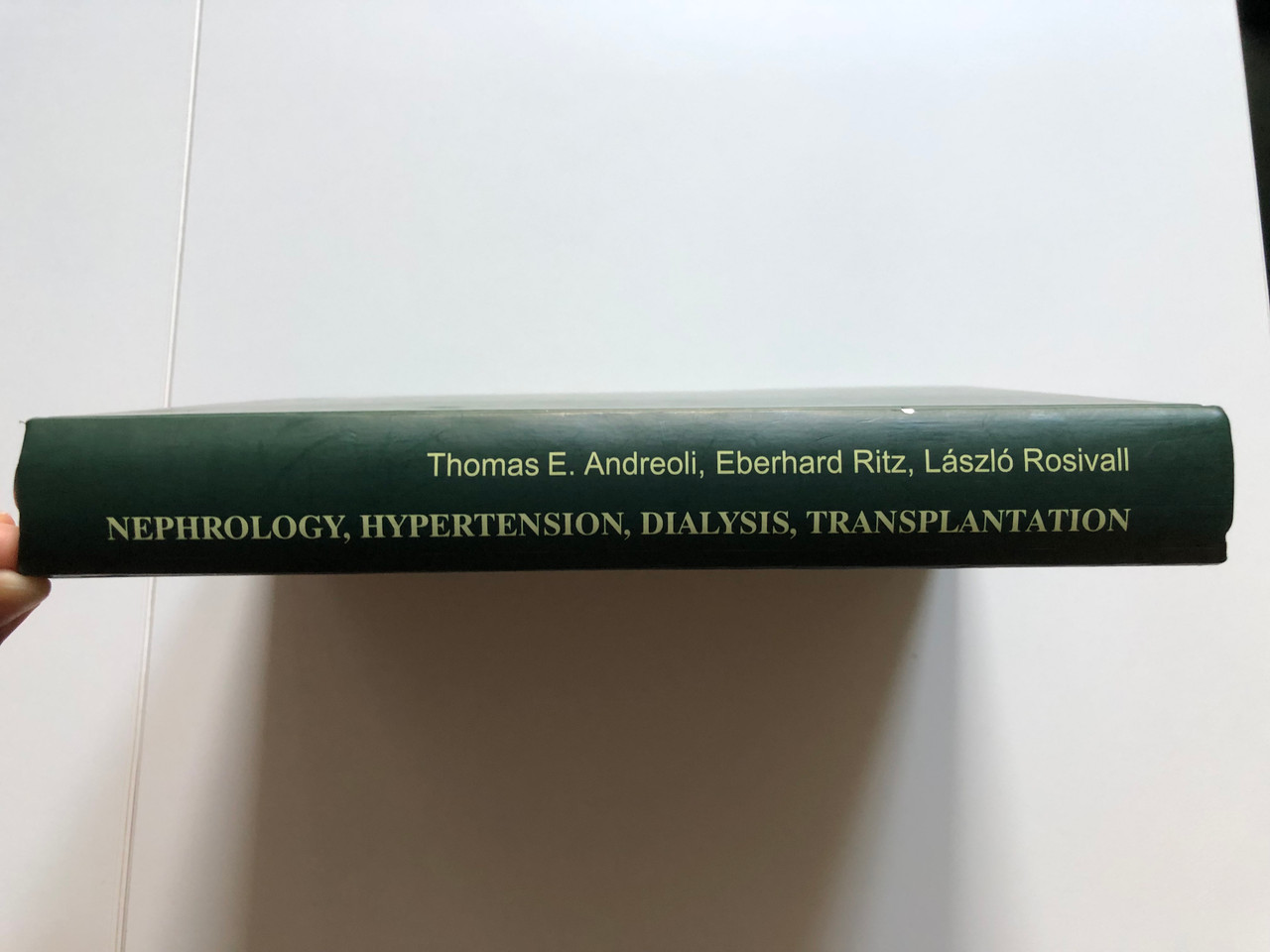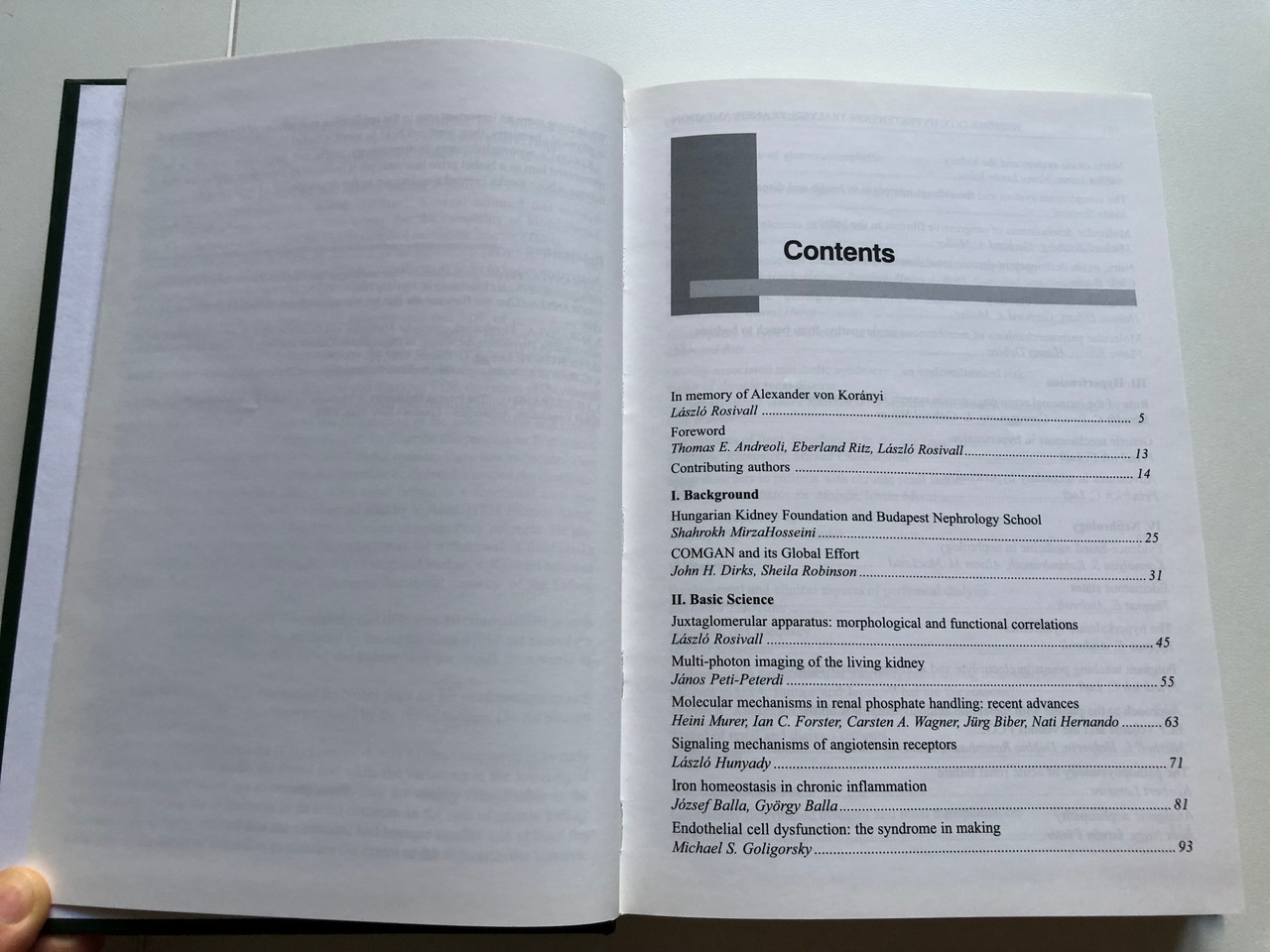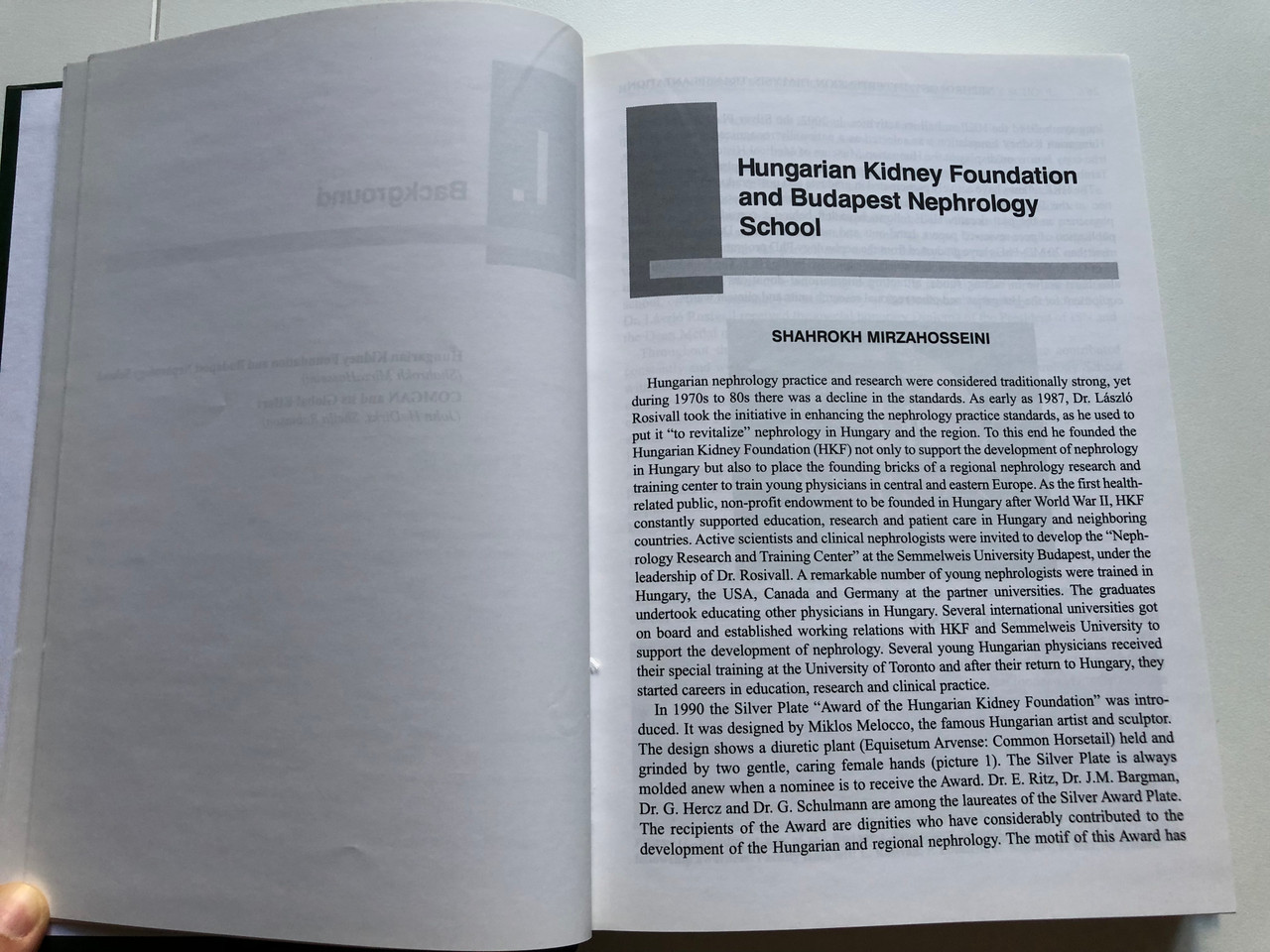Description
NEPHROLOGY, HYPERTENSION, DIALYSIS, TRANSPLANTATION / Editors: by Thomas E. Andreoli, Eberhard Ritz & László Rosivall / Budapest Nephrology School International Society of Nephrology European Kidney Research Association Hungarian Kidney Foundation
UPC: 9789632188324
- Publisher: Hungarian Kidney Foundation
- Year of publication: 2006
- Binding type: Hardcover
- Area: 655
- Language English
- Size: Width: 17.00 cm, Height: 24.00 cm
- Weight:
- Category: Natural science / Health / Medical / Foreign language / Languages / English
- ISBN: 9789632188324
Alexander von Korányi (1866-1944) was born in Budapest. He graduated in medicine in Budapest, then he moved to Strasbourg for his fellowship with F. Hoppe Seiler He devoted himself to the application of a physicochemical approach in the study of renal function in health and disease. Claude Bemard has postulated that healthy human organism is characterized by stable asmotic concentration of "milieu intérieur. Korányi assumed that kidneys regulate the osmolality of urine in such a way that the osmolality of blood should remain constant, concluding that the kidneys control the milieu interior (1894)
He employed the measurement of freezing point depression (FDP) to follow the osmolality of urine and blood in many different conditions in order to better understand the kidney function under normal and pathophysiological states (1). He recognized the marked reserved capacity of the kidneys to change the osmolality of the urine. In a patient with a one-side ureterostomy he demonstrated that FDP of urine from the diseased kidney changed less than that of in the contralateral healthy kidney. He concluded that the urine FDP is dependent on the state of kidney function and not on systemic metabolic change. He also postulated, based on his measurements, that the difference between the achievable minimal and maximal FDP, decreases proportional to the severity of the kidney disease. He recognized that the maximum FDP decreases while the minimum FDP increases by the progression of the renal disease and finally both values get close to the FDP value of blood. To describe this process he first coined the terms "hyposthenuria" and "isosthenuria". In his opinion, since less molecules were found in the urine of a diseased kidney, the retention of molecules caused the characteristic symptoms of renal failure (1896). Thus renal failure as a functional term was established by v. Korányi as it was emphasized also by Volhard, (1938 Buenos Aires) He also observed and recognized the hyposthenuric compensatory polyuria. He pin pointed the general malpractice of that time which was the withdrawal of fluid intake under this condition. Based on the results of his functional studies, v. Korányi adjusted
the patient's diet and life style to the remaining functional capacity of the kidney (2,3,4).
He stated: "If we would be able to control the diet of kidney diseased patients in such a way that the number of molecules produced by the metabolism would not exceed the remaining molecular excretion capacity of the kidney then we would do a world of benefit for the patients." Alexander von Korányi was nominated for Nobel prize for his renal researches as it has been documented in the publication produced by the Nobel Institute (5). An inscript of the publication reads as: "In his studies of the functions of the kidneys, A. von Korányi employed at an early date physicochemical methods. He found that while the variations in the lowering of the freezing point of blood are extremely small, they are usually considerable in the case of urine, owing the differences in its solid contents. In the case of certain kidney diseases, von Korányi noticed that the variations had become smaller and utilized the reduction in the range of toleration to measure the extent of the defects in the kidneys.
While these were an important step in the application to medicine of the advances made in physical chemistry, they were not held to merit a Nobel Prize." Korányi's accomplishments in nephrology might not have been enough to have recognized him as a Nobel prize laureate, yet it is certainly enough to appreciate him as the one whose works created a milestone in the development of nephrology.
